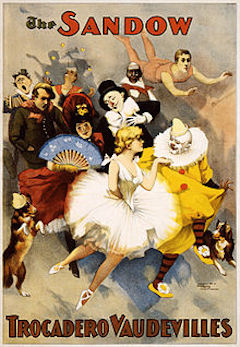In the space of a few weeks in February, we lost the well-regarded journalists Bob Simon, David Carr and Ned Colt, while NBC’s Brian Williams was dethroned amid scandal. In all these cases, the words “truth” and “trust” and less commonly “transparency” have taken center stage. Quality media professionals succeed because they are truthful, and there is transparency in verifying that truth; together, this breeds trust. Trust is the one value central to anyone involved with reporting news.
The words “truth,” “transparency” and “trust” recently have taken on renewed importance in higher education. The reporting and handling of sexual assaults, athletic cheating scandals, Muslim student deaths, the intrusion into the admissions process by college/university presidents forcing acceptance of new students who are politically connected, and fraternity hazing among other inappropriate activities have run headlong into efforts to determine the truth, demonstrate institutional transparency and establish and maintain trust among the wide range of stakeholders.
One example: The “facts” that appeared in a Rolling Stone article related to an alleged rape at a fraternity at the University of Virginia were later retracted. Before this occurred, actions were taken by the university against that fraternity. When the implicated fraternity challenged the factual assertions, a different version of the “facts” emerged, then challenged by the rape victim and some of her friends. The university changed its stand. Then and not without controversy, sorority women on the UVA campus were directed by their national organization not go to frat parties because of safety risks.
The problem with the three “t” words is their complexity—within and outside higher education. Determining “truth” is not easy. Consider the Rashomon effect; different people witnessing an event perceive and describe that event differently. This may be because of faulty memory or unconscious personal bias or unspoken leanings toward a desired outcome and other reasons. Usually, witnesses do not self-perceive as liars. Evidence of challenges of fact-finding abounds in the handling of disciplinary matters on campuses across the nation, raising the need for independent investigators in Title IX cases.
Another distortion of truth can come from “not seeing” all that is there. In the oft-seen film clip showing the students throwing a basketball to each other, a gorilla crosses the room. Because the viewers have been asked to focus on and count the number of throws, many never see the gorilla in the room. Really.
Our capacity to “see” and “share” the truth also depends on what “truth” we are addressing. The truth of some facts—like the world is round—are easy to establish. Other perceived facts like “there is a God” are surely debatable. In classrooms early on, students often seek to identify “the” answer only to learn there is no answer, a frustrating reality for many students.
Transparency, a term that is oft used to refer to the need for government openness, is equally complex. When information reflects badly on a college or university, there is often an effort to bury that truth, lest parents or new students learn of it. But with the Internet, failure to disclose is fraught with risk, as the negative information will be found, worsening the absence of transparency. It is vastly better that institutions, rather than outsiders, control their own bad news.
There are times when telling the truth will produce serious adverse consequences. In the movie The Imitation Game, even with its adaptations of history, there is proof positive of the devastating consequences of “truths” contained in the decoded messages, knowledge that forced individuals to make choices to protect the larger good. On a campus, too, disclosing information like the identity of a victim of rape can have serious consequences, particularly if the rapist is a popular figure on campus.
Establishing trust, animated by both truth and transparency, is hard. It takes time and we test its limits. We know a child’s development is impaired if a parent cannot be trusted. But losing trust is easier. One or two false steps can erode trust, and rebuilding it is not always possible—despite a myriad of past positive decisions. In a relationship, for example, trust undermined by infidelity can sometimes be overcome depending on the individuals, the circumstances and the gravity of the offenses.
Education leaders and campuses must build trust. College presidents know that if they lose the trust of their boards, their faculty, government officials and sometimes their students, their jobs are at risk. Of late, too many presidents have lost their positions because the trust others held in them was eroded beyond repair. No one is suggesting that university and college presidents be flawless. But, they must ferret out—and often quickly—what is fact and what is fiction. They must spend the time to think through the words they use to describe volatile situations. Above all else, they need to own the truth, whether it is good or bad.
In education circles, we often talk about truth-seeking. The word appears in college insignias. Consider Veritas. We use the phrase: And the truth shall set you free. But, perhaps genuine “trust” (which rests on truth and transparency) better embodies what we need to develop on campuses today. Some students have trusted their sexual partners only to then experience harassment and assault. Students have trusted that they and their colleagues can truly imbibe ad infinitum, only to later realize the deadly impact of alcohol poisoning and drunk driving. We trust that the academic community will protect us from killings and discrimination, a trust that is eroded by events like the shooting of Muslim students.
Judging from current events, trust on our campuses is eroding, including in our leaders and within the student population. Without trust, the connectivity so central to the creation of community and the capacity to learn and take risks diminishes. We need to spend more time rebuilding and valuing trust, not just divining and sharing truth.
Maybe the lessons from the three trustworthy media giants who died contrasted with the Shakespearean fall of now less than trustworthy Brian Williams will help education leaders and their communities refocus on the value of trust in its many dimensions. That, in a world of bad news, would be good.
Karen Gross is former president of Southern Vermont College and former senior policy adviser to the U.S. Department of Education. This originated in the Web site of the New England Board of Higher Education (nebhe.org).


